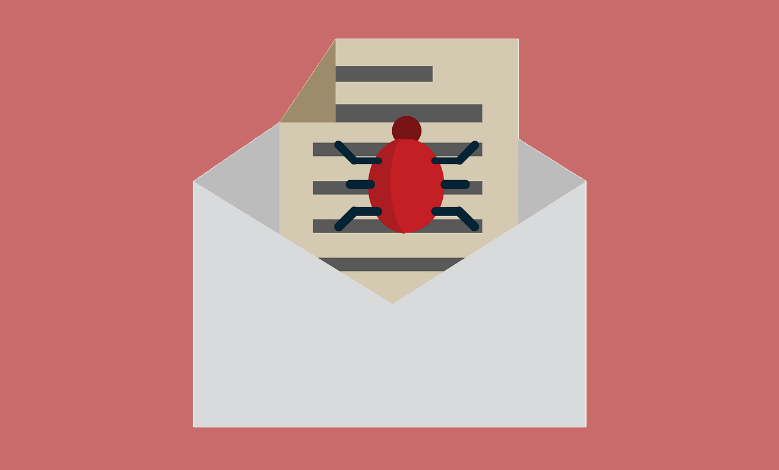Scam Messages with Links m3svc.info or m1shv.info – final or important or urgent alert or notification or notice for your USPS package or about or regarding your USPS delivery or regarding the USPS shipment. Click: m1shv .info

Beware of phishing messages with m1shv .info, etc. links coming from numbers like 929-215-1058, 917-859-6829, 917-865-9210, 917-859-6829, 917-769-6339, 917-208-2209, 909-780-6729, 858-722-4336, 781-473-5742, 718-536-8327, 714-271-2132, 657-360-4232, 617-275-9288, 503-388-2754, 470-505-3095, 401-225-7193, 209-270-2308, and so on such as:
- "NAME, final alert regarding your USPS delivery 5G85L4 from 8/22/2020. Click m3svc .info/4pZkN96gu2"
- "NAME, important notice for your USPS package 1D53D8 from 05/24/2020. Click: m3svc .info/4pLUkeFnOl"
- "NAME, urgent notification about the USPS package 7D33J8 from 04/26/2020. Proceed to m3svc .info/4pDw2a85Nt"
- "NAME, final alert for your USPS shipment 1I45I4 from 03/23/2020. Click: m3svc .info/4pSCyGet87"
- "NAME, urgent alert for your USPS package 5J45G8 from 08/14/2020. Click: m1shv .info/lvQREc7765"
- "NAME, urgent notification about the USPS delivery 8S13R1 from 06/07/2020. Go to: m3svc .info/4plyd09ASf"
- "NAME, urgent notice regarding the USPS shipment 2R22D7 from 03/24/2020. Proceed to m3svc .info/4pIyd0rRJX"
- "NAME, urgent notice about the USPS package I61J3 from 06/09/2020. Go to: m3svc .info/4plyd0mmpp"
- "NAME, final notification regarding your USPS package 6G51F* from 04/06/2020 proceed to m3svc .info/4pUiCifUmg"
- "NAME, important notice for your USPS shipment 6D3D4 from 03/02/2020. Go to: m3svc .info/4pLUkeCriS"
- "NAME, urgent notice regarding your USPS delivery D67K5 from 03/17/2020. Go to: m3svc .info/4pGS9oiWwm"
- "NAME, urgent notification regarding your USPS delivery 2R42D4 from 07/02/2020. Click: m1shv .info/lvSxHOAkeC"
- "NAME, important notification regarding the USPS shipment 7F33D1 from 06/16/2020. Click: m1shv .info/lvQREcEF2V"
- “NAME, final notice about the USPS delivery 5K14F8 from 08/01/2020. Go to: l8smk .info/GpCzcStFGn"
- "NAME, final notification regarding your USPS delivery A9H8 from 05/26/2020. Go to: m3svc .info/4pGS9obvZG"
- "NAME, urgent notice about the USPS delivery 7L91H6 from 04/10/2020. Proceed to m3svc .info/4pIyd02AK4"
- "NAME, urgent notice regarding your USPS package 8A5L5 from 05/20/2020. Go to: m3svc .info/4pDw2ar74B"
- "NAME, urgent notice about your USPS delivery 7L75S5 from 08/10/2020. Click: m3svc .info/4pIyd0EYxx"
- "NAME, final notification for your USPS shipment 6D78R3 from 06/06/2020. Proceed to m1shv .info/lvQREcmbNk"
- "NAME, improtant notice about your USPS delivery 8J16G1 from 8/9/20. Proceed to m3svc .info/4pDw2a9Sm4"
- You can find more examples of similar types of fraudulent text messages by clicking these links:- l8smk .info, 17smv .info, 14sve info, L1smc info, L3smr info, l5ssv info, and I1smc info
The reality of fake message – final or important or urgent alert or notification or notice for your USPS package or about/regarding your USPS delivery or regarding the USPS shipment. Click or Proceed To or Go To: m3svc .info or m1shv .info and so on
The fraud messages: final or important or urgent alert or notification or notice for your USPS package or about/regarding your USPS delivery or regarding the USPS shipment. Click or Proceed To or Go To: m3svc .info or m1shv .info, and so on are nothing other than the phishing messages send with the intention to scam you. These messages are not from any genuine company but are from scammers. So, whenever you got these kinds of messages, you should not follow any instructions provided on these messages. Instead, you should contact or check on the official website of the respective company (if mentioned any on these scam messages) to confirm either these messages are real or fake.

What is the motive behind fraud “final or important or urgent alert or notification or notice for your USPS package or about/regarding your USPS delivery or regarding the USPS shipment. Click or Proceed To or Go To: m3svc .info or m1shv .info” messages?
These kinds of messages are being sent by scammers to get your personal information so that they can scam you. They may ask you to click some link and submit the personal details on the fake website posing the real ones or call them or message them where they will trick you to submit your personal details. So, you should not follow any instructions provided on these messages. If you click any link provided on these messages or download anything (if provided any) from these messages or follow any instructions, then you may end up losing your personal information. The links or files provided on these messages may contain some viruses or malware or spyware that can hack your device to get your personal information.
Once these cybercriminals get your personal information, they make money by selling those details. If they get your credit card information, even they can steal money from your credit card. So, you should not follow any instructions provided on these kinds of messages.
These messages may not come from the same number or same email or in the name of the same company. These scammers may use multiple numbers, emails, and the name of companies to send similar messages. The few examples of scam text messages are:
- Beware of Scam Text Messages with Links 17smv .info or l7smv .info or 14sve .info or i6svs .info
- SCAM MESSAGE with l4sve .info or 12scr .info or L3smr .info or 1smc .info links
- SCAM TEXT MESSAGE: We came across a parcel or package pending for you or owed to you. Please claim ownership or assume ownership and schedule for delivery here: L3smr .info or I3smr .info or L1smc .info or 1smc .info or l2scr .info or I2scr .info
- SCAM ALERT! Sole Society or Vince Camuto Email: Legal action can be taken against you, there has been a problem with your order
- $750 Cash App Transfer is pending your Confirmation
- Venmo is hiring 5 people to work from home Scam Message
- Unsuccessful Payment. Call 4702312181 or 4702314478 or 9706277110 Fraudulent Text
- Call 2052872786 or 2052870227 or 2052872613 Fraudulent Text
- AT&T Unsuccessful Payment or Unauthorized Payment Scam Text Message Asking to Call
- Unauthorized payment. Call 1-878-207-4515; K4svz info Scam Messages
- K3svc info Scam Messages
- K2scz info Scam Text Messages
- K1smv info Scam Text Messages
- J9svc info Scam Messages
- J7ssv info or J8smk info Scam Messages
- J6svc info Scam Message
- J4szv info Scam Message
- Shipped: Your Walmart Package Loyalty Reward will be Delivered
- Shipped: Your Amazon Package Loyalty Reward will be Delivered
- Your Shipped: Your Costco Package Loyalty Reward will be Delivered, etc.
So, help us by reporting similar types of messages by using the comment section below.
Now you know the reality of messages: “final or important or urgent alert or notification or notice for your USPS package or about/regarding your USPS delivery or regarding the USPS shipment. Click or Proceed To or Go To: m3svc .info or m1shv .info”, etc. So, if you still want to say something about it, then please feel free to leave your comment below. You can also comment below to report about similar kinds of scams or even to report about any kinds of scams. After all, we are here to spread awareness about the scams. So, let’s do it together. Let’s save innocent people from scams.
You can find about various kinds of scams by scrolling within our “Scams” category by clicking >HERE< or you can navigate our website through our home page to find out the several interesting and knowledgeable articles under different categories by clicking >HERE<.
If you want to share this post with your friends and families through your social media accounts to make them aware of this “final or important or urgent alert or notification or notice for your USPS package or about/regarding your USPS delivery or regarding the USPS shipment. Click or Proceed To or Go To: m3svc .info or m1shv .info” and so on scam messages, then please feel free to do so.
Actually, we recommend you to share this post with your friends and families through your social media accounts because it will help to spread the awareness about this scam and other similar kinds of scams. More we share about scams with our friends and families, more they will be aware of these kinds of scams which will ultimately make scammer difficult to scam innocent people. So, it’s better you share this post with your friends and families if you want to fight back with the scammer.
We request you to spread awareness about the scam and suspicious online websites/activities by sharing the information provided on our website [De-Reviews.com] through your social media accounts which can help your families and friends to be safe from scams. The numbers of online scams are massively increasing each day with ever new tricks and strategies, so it has become very crucial to aware the society about those scammers so that it will make scammer difficult to scam people. So, please let your friends and families know that they can rely on our website [De-Reviews.com] to check the legitimacy of any online websites. You can also bookmark our website so that it will be easy for you to visit our website repeatedly at the time of need to check the legitimacy of any online companies or online activities.
Thank you.

